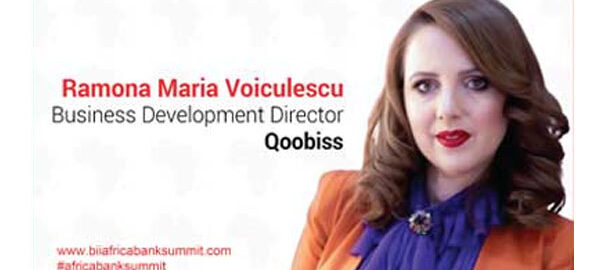1) How are regulatory frameworks evolving to support innovations in digital banking and fintech while ensuring consumer protection and data privacy?
Ans – I think regulatory frameworks for digital banking and fintech are evolving consistently, precisely and fast enough to balance the promotion of innovation. Maybe they will never be ahead of the technology trajectory, but I can see the efforts of keeping it closely to our speed of developing innovative solutions. Also, we can see clearly in the past few years that the regulatory requirements are tailored to the specific risks posed by fintech activities, ensuring at the same time the regulatory burden does not stifle innovation, particularly for startups and smaller firms. As fintech innovations proliferate, regulators are reinforcing consumer protection frameworks – and this is a must! Today, more than never, AML and KYC regulations aims to enhance transparency and accountability within the fintech ecosystem. Overall, the dialogue – promoted in events like this Summit remains the key between regulators and industry stakeholders in shaping a balanced approach that fosters innovation and safeguards consumer interests.
2) Can you discuss the rise of neobanks in West Africa and their impact on traditional banking systems and financial inclusion?
Ans – The rise of neobanks in the entire world is reshaping the banking sector by challenging traditional banks to innovate and adapt. And it’s good to be this way not because one key of evolution is the change, but because the easiness, the fluidity, the economy of work and time that brings a neobank to the ecosystem. “Digital-only” impacts everything, not only the financial sector but as we say in nuclear: “any activity should proceed if their benefits outweigh the associated risks”. In West Africa, the emergence of neobanks is a response to the high number of unbanked and underbanked individuals, leveraging technology to offer affordable and accessible financial services. Following the examples of Kuda in Nigeria (which has gained a substantial user base by offering zero maintenance fees and free transfers) and TymeGroup in South Africa (which focuses on financial inclusion), it is more than clear that neobanks play a crucial role in improving financial inclusion in West Africa. Accessibility, tailored services, the user-centric approach are the key elements of ongoing evolution of this sector. Must be searched in this context, the opportunities for both neobanks and traditional banks to collaborate and improve the overall financial ecosystem in the region.
3) How can governments, financial institutions, and the private sector collaborate more effectively to foster innovation and competition in the financial services industry?
Ans – They can meet at events like this, see each other’s achievements and latest innovations, ask for help, collaborate, establish partnerships. Today, the way of fostering innovation is through collaboration.
- Governments can establish regulatory sandboxes that provide a controlled environment for fintech firms to test new products and services under regulatory supervision (we can see the success of Monetary Authority of Singapore’s in this approach).
- Financial institutions and fintech firms can collaborate to develop data sharing and integration frameworks that enable fintech firms to access customer data and integrate with existing financial infrastructure (the UK’s Open Banking initiative is a successful example of this approach).
- Governments, research institutions, and private sector organizations can provide research grants, funding opportunities, and collaborative research partnerships to support fintech firms engaged in R&D activities.
Regulatory authorities and governments can establish robust intellectual property, frameworks, including patents, trademarks, copyrights, and trade secrets, to protect and incentivize innovation.
4) What are the primary challenges faced by fintech companies in West Africa, and what innovative solutions are being developed to address these issues?
Ans – The primary challenges faced by fintech companies in the region, are:
- Regulatory uncertainty
- Infrastructure limitations
- High customer acquisition costs
- Data privacy and secure concerns
- Limited financial literacy
However, innovative solutions are being developed to address these issues and enhance the financial landscape in the region. As I mentioned before these are (but not limited to):
- Regulatory sandboxes
- Partnership with traditional banks
- Mobile technology and alternative payment solutions
- Education and Awareness Programs
- Blockchain and Cryptocurrency Solutions
- Being a fintech company in West Africa you are facing all the above challenges but you are determined this way to develop innovative solutions to address these issues. By leveraging technology, fostering collaborations, and enhancing financial literacy, fintech can significantly contribute to financial inclusion and economic growth in the region.
5) How would you think attendees will benefit by attending the15th Africa Bank 4.0 Summit – West Africa?
Attending the 15th Africa Bank 4.0 Summit – West Africa offers numerous benefits for all participants across any services sector. I can only tell what brings for Qoobiss this participation but I’m sure most of the gains are available for all of us:
- Knowledge – both the acquisition and opportunity to share/offer our expertise
- Networking opportunities – the best way of establishing the first steps for future important collaborations starts with the first hand-shacking at the event
- Exposure to Innovative Solutions – the opportunity to see, touch, experiment the latest innovations and their creators at the same place; for us the proper scene to reveal the latest product we’ve created
- Discussion of Real-World Challenges – as a former research engineer, I can only be happy for the opportunity to express my opinions regarding the world’s biggest challenges and to find out other expert’s thoughts about them
Strategic Insights for Business Growth – as the BDM of Qoobiss I’m thrilled to exchange information in this regard.



